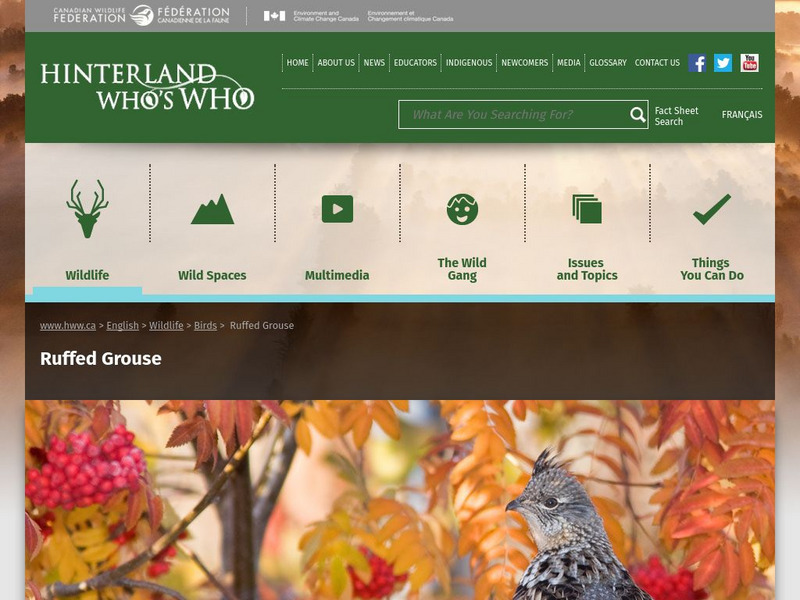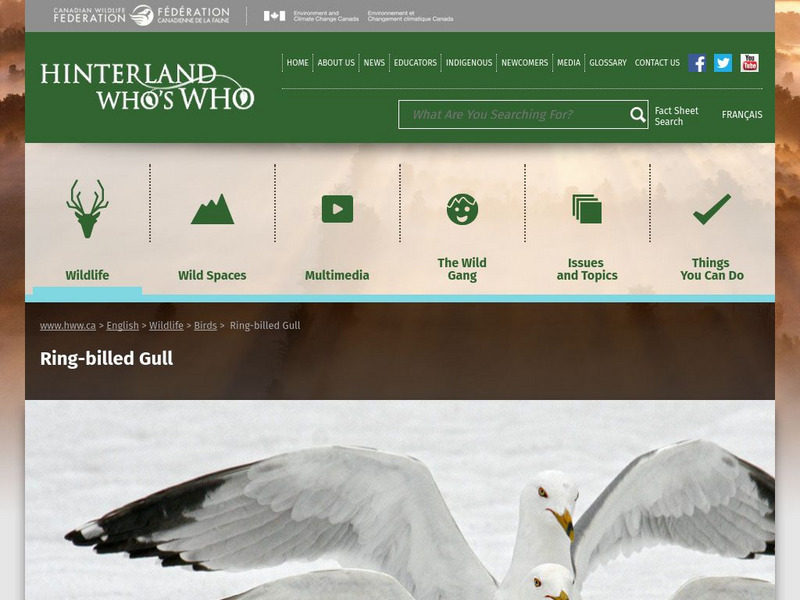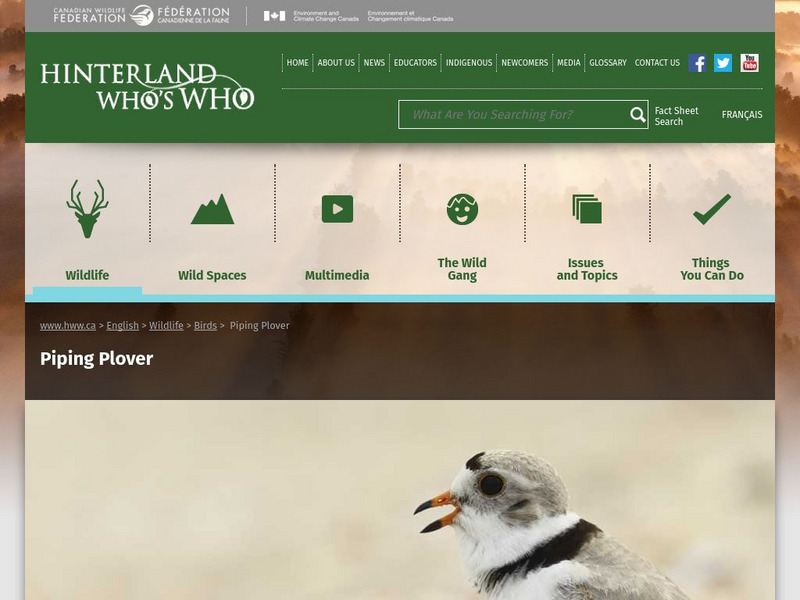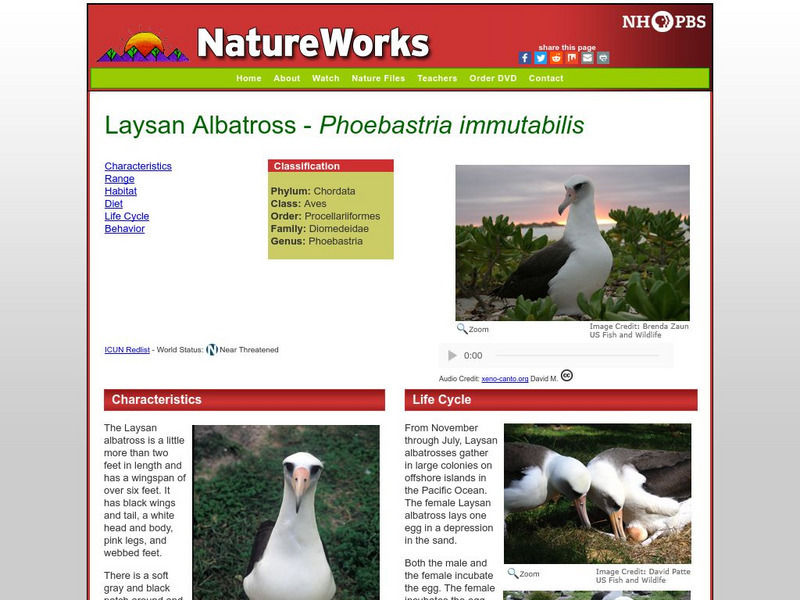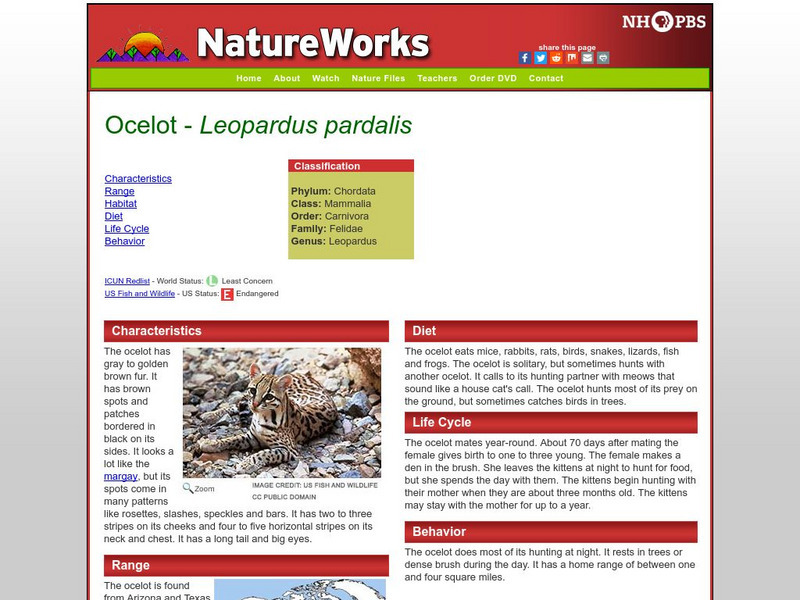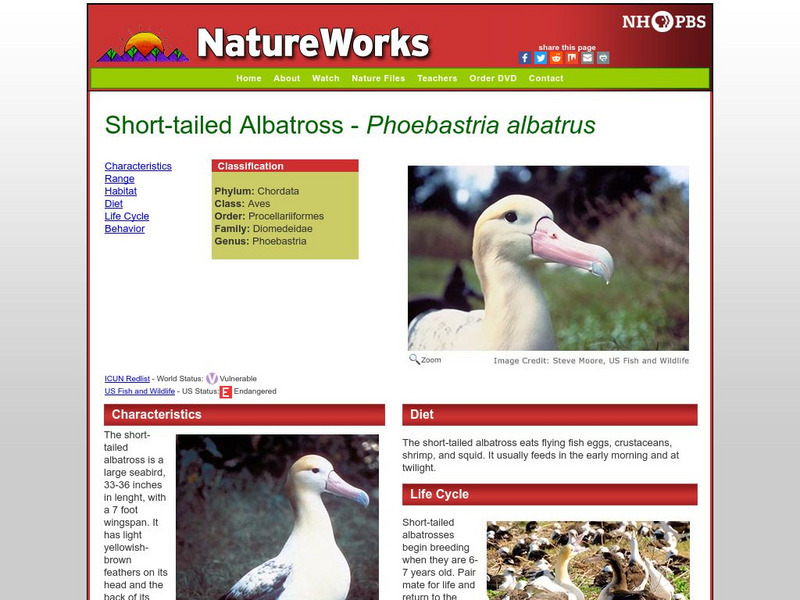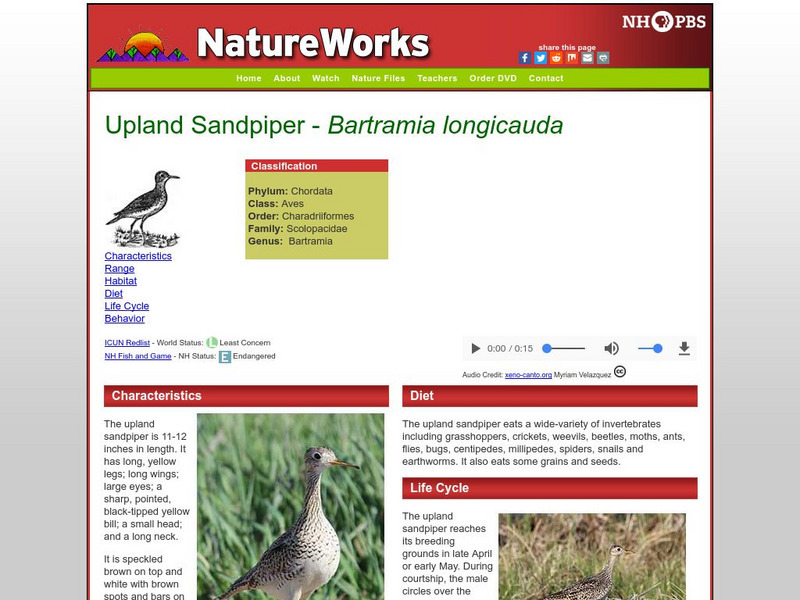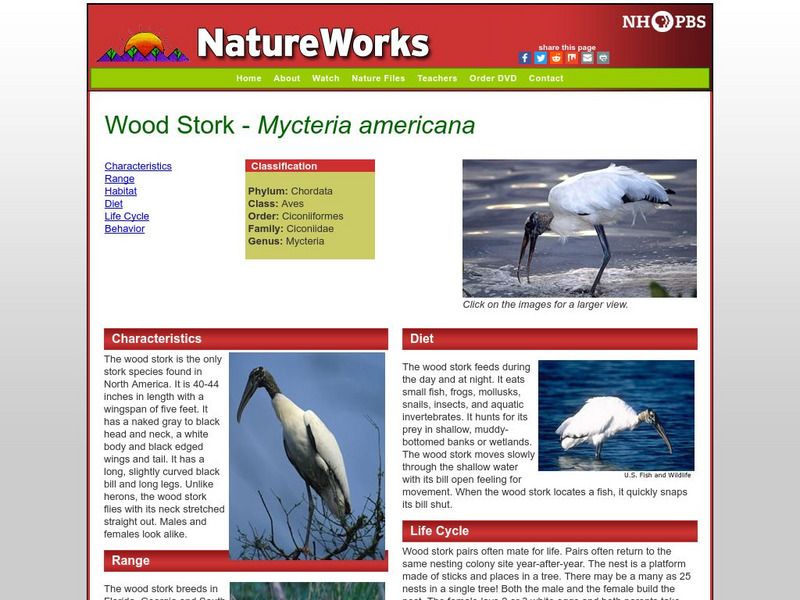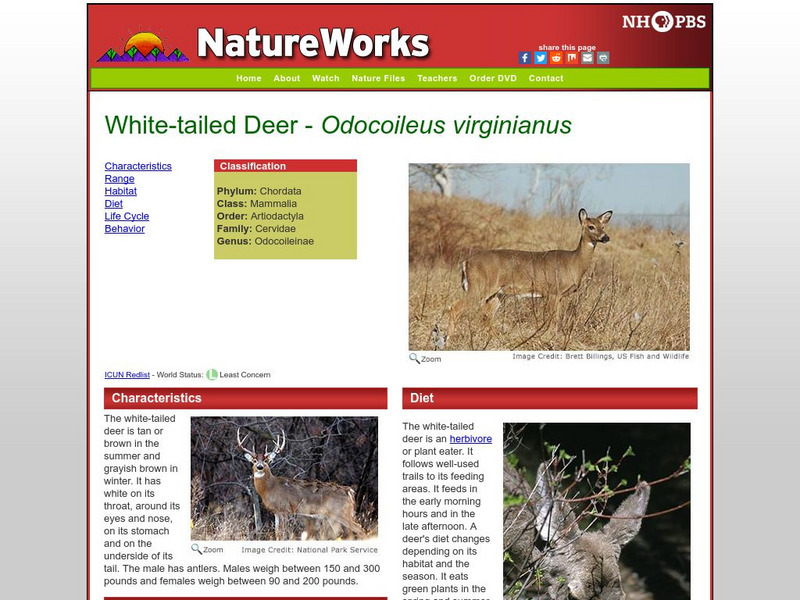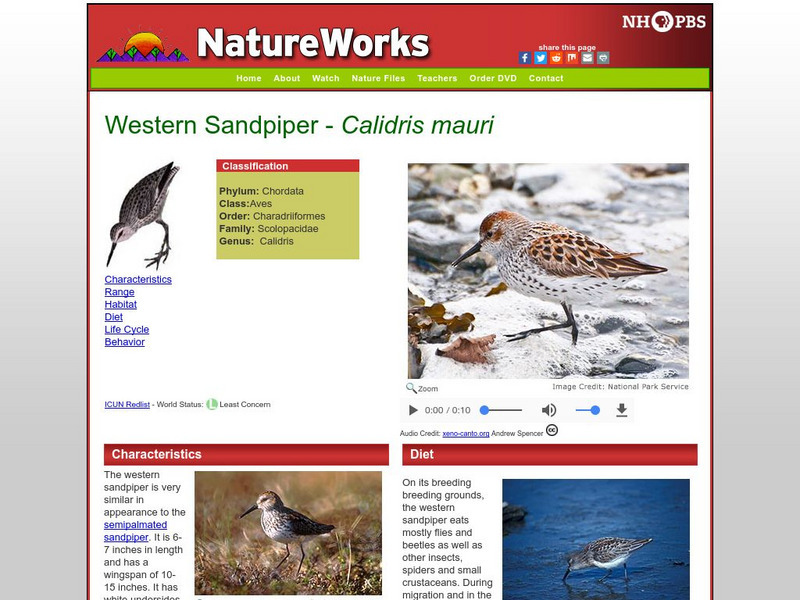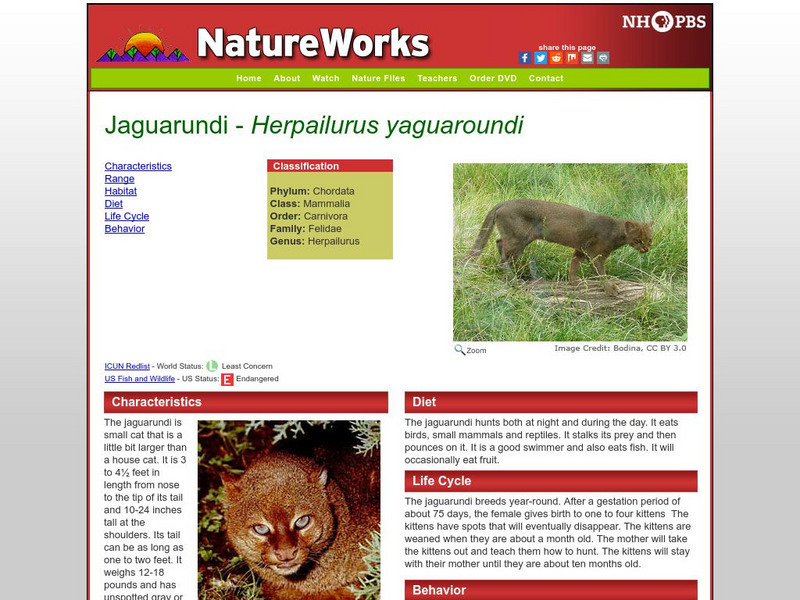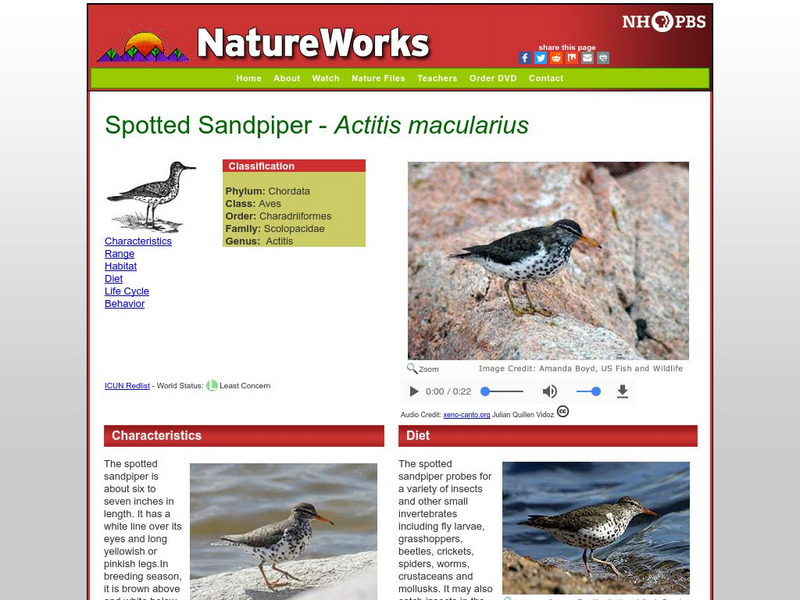Canadian Wildlife Federation
Hinterland Who's Who: Ruffed Grouse
Get the facts about the Ruffed Grouse. Besides finding a detailed physical description of this woodland bird, you?ll also learn about some of its unique facts and characteristics. Also included in this Bird Fact Sheet on the Ruffed...
Canadian Wildlife Federation
Hinterland Who's Who: Ring Billed Gull
Get the facts about the Ring-billed Gull. Besides finding a detailed physical description of North America?s most abundant gull, you?ll also learn about some its unique facts and characteristics. Also included in this Bird Fact Sheet on...
Canadian Wildlife Federation
Hinterland Who's Who: Piping Plover
Get the facts about the Piping Plover. Besides finding a detailed physical description of this bird, you?ll also learn about some its unique facts and characteristics. Also included in this Bird Fact Sheet on the Piping Plover is...
Canadian Wildlife Federation
Hinterland Who's Who: Downy Woodpecker
Get the facts about the Downy Woodpecker, eastern North America's most common woodpecker. Besides finding a detailed physical description of the smallest member of the woodpecker family, you'll also learn about some of this bird's unique...
PBS
Nh Pbs: Nature Works: Killdeer
What characteristics make the Killdeer unique? Find out when you explore this educational resource. This site also includes information on behavior, life cycle, diet, range and habitat.
PBS
Nh Pbs: Nature Works: Laysan Albatross
Discover more about the Laysan Albatross through the exploration of this resource. The content of this resource includes a look at this species' characteristics, range, habitat, diet, behavior, and life cycle.
PBS
Nh Pbs: Nature Works: Northern Pintail
This site explores the world of the Northern Pintail. Students and teachers will learn about this species' behavior, characteristics, life cycle, diet, habitat and range through this informative source.
PBS
Nh Pbs: Nature Works: Ocelot
Find out how and where this small cat lives through the exploration of this educational site. The content of this source includes information ranging from characteristics and habitat to life cycle and diet.
PBS
Nh Pbs: Nature Works: Short Tailed Albatross
What makes a Short-tailed Albatross unique? Learn more about this fascinating aquatic bird through this resource. The site features information ranging from characteristics and behavior to life cycle and diet.
PBS
Nh Pbs: Nature Works: Tree Swallow
Find out more about the Tree Swallow when you explore this clear and concise resource. This site features information ranging from characteristics and diet to behavior and life cycle. Don't miss out.
PBS
Nh Pbs: Nature Works: Upland Sandpiper
Explore the world of the Upland Sandpiper through this educational site. Learn more about this aquatic bird's characteristics, range, habitat, life cycle, diet and behavior.
PBS
Nh Pbs: Nature Works: Wood Stork
Learn more about the Wood Stork through this educational source. Students will discover more about this wading bird's characteristics, life cycle, behavior, diet and more.
PBS
Nh Pbs: Nature Works: Little Blue Heron
Find out more about the Little Blue Heron through this educational resource. The content of this source includes information on behavior, characteristics, life cycle, diet, habitat and range.
PBS
Nh Pbs: Nature Works: Margay
The Margay is a nocturnal feline that lives in Mexico and South America. The content of this source includes a look at this species' life cycle, habitat, characteristics, range, behavior. and diet.
PBS
Nh Pbs: Nature Works: White Tailed Deer
Find out what makes the White-Tailed Deer unique when you explore this educational resource. This site identifies characteristics, life cycle, range, behavior, habitat and diet for this mammal.
PBS
Nh Pbs: Nature Works: Florida Panther
Learn more about the Florida Panther through this educational site. Students will find information about habitat, life cycle, diet, behavior and more of this small cat.
PBS
Nh Pbs: Nature Works: Western Sandpiper
Discover what characteristics make the Western Sandpiper unique when you explore this resource. The content of this site also includes information on diet, behavior, life cycle, habitat, and range.
PBS
Nh Pbs: Nature Works: Jaguarundi
Learn more about the Jaguarundi through the exploration of this resource. The content of this site includes information on behavior, characteristics, life cycle, diet, range and habitat.
University of Wisconsin
The Why Files: Mosquito Bytes
A general description of the life cycle of the mosquito. Includes inforation on why they need blood and how they breed.
Other
Wonder Club: Praying Mantis
Did you know that large mantises will tackle and eat tree frogs and nestling birds? Find out more interesting facts plus information on habitat, breeding, lifestyles, and more in this complete site.
Canadian Museum of Nature
Canadian Museum of Nature: Kangaroos
Get to know the Kangaroo.. colored photos, description, life cycle, map of habitat, food. Only the basic details of this marsupial are given, making this site perfect for younger researchers.
Agriculture in the Classroom
National Agricultural Literacy Curriculum: From Chicken Little to Chicken Big
Students will identify different breeds of chickens, examine physical characteristics, and determine the stages of a chicken's life cycle.
PBS
Nh Pbs: Nature Works: Spotted Sandpiper
This site identifies information about the Spotted Sandpiper. The content of this resource includes a look at this species' characteristics, range, habitat, diet, and more.
PBS
Pbs Nature Critter Guide: Crows
Research shows that crows are considered the most intelligent type of bird. Discover more about these black feathered friends through this resource filled with fun facts and information. Students will learn more about the social...
